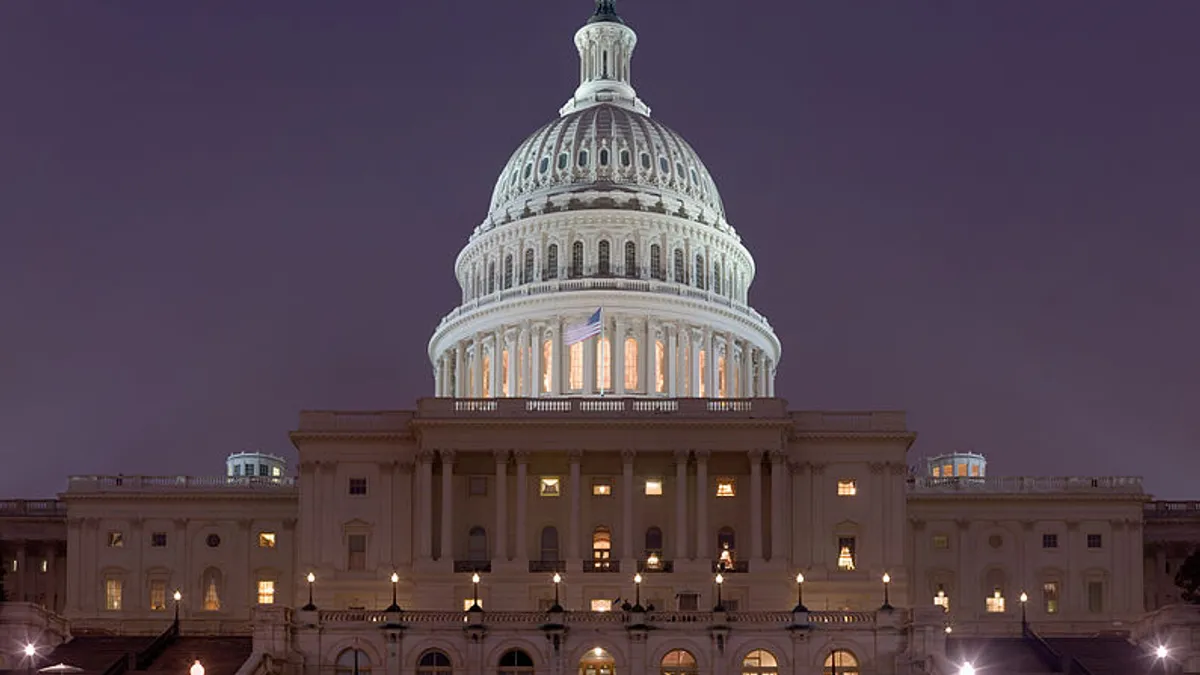Dive Brief:
- The lack of vociferous opposition by major U.S. utilities to new Environmental Protection Agency (EPA) regulations to reduce CO2 emissions from existing power plants could be due to the influence they hold over state policymakers and regulators.
- States are expected to turn to utilities for advice and collaboration to meet the new targets, according to industry analysts.
- Investor-owned utilities often have PAC groups that donate to individual politicians. Electric cooperatives often count influential people in the community as members. Municipal utilities are typically run by city council members who have clout in the region.
Dive Insight:
Because the EPA chose to turn over responsibility for meeting its emissions reduction targets to individual states, utilities have a significant opportunity to influence compliance plans. Utilities may not get far by lobbying in the nation's capital but they have more immediate clout on a state level as local employers, service providers, and economic powerhouses.
The cause of utility companies' silence over the new standards is because "for most of them their opportunities to influence state implementation is significant, much more significant than their ability to influence Washington, D.C., or regulators at EPA," said Tyson Slocum, director of the energy program for Public Citizen, a consumer advocacy group.













